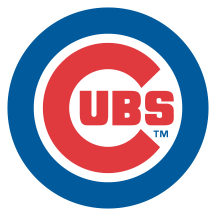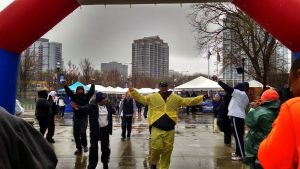
Ric Addy, owner of Shake, Rattle & Read, a used bookstore in the Uptown neighborhood on the North Side of Chicago, said he once had a customer describe his store as a “pop culture museum.”
The walls of the store are lined with wooden shelves overflowing with books, magazines, CDs and DVDs; racks of vinyl records reside in the center of the room, providing some sort of balance to the chaos. Posters of Elvis Presley and Marilyn Monroe are pinned to the wall nearest the entrance, and boxes of books are stacked on the floor.
In the age of the Kindle and e-books, free music services such as Spotify, and digital downloads and purchases through iTunes, Amazon and eBay, Addy said it’s a difficult time to operate a used book store. However, he said he has been able to stay in business by adapting to the online market and keeping his prices competitive, but most importantly, he said he sells a product that continues to intrigue customers’ interest in popular culture.
This interest in popular culture usually revolves around the death of an icon, Addy said. The recent death of Dick Clark is a current example of this phenomenon. When cultural icons such as Clark die, it sparks a wave of interest and remembrance. During the years, Addy said he’s witnessed this process play out in his own store as people flock to claim any form of nostalgia as their own.
“The most collectible items are from people who have died young,” he said. “I think you have to die young. That helps.”
The most recent examples Addy could recall were the deaths of Michael Jackson and Whitney Houston. After the death of Jackson and Houston, Addy said he had several people come into the store and buy everything from vinyl records, album covers, CDs, magazine covers and biographies. After a few weeks, the trend begins to fade, he said, and attention is given to the next celebrity death.
He added that there are always exceptions to the rule. Addy carries used records and publications featuring artists such as The Beatles, Neil Young and The Rolling Stones, and people continue to shop for these collectibles.
Collecting items like records, books and magazines is something Addy said will never die out and is essential to his business.
“There’s always going to be people who like the physical form,” he said. “Whether it be the retro form of the vinyl or book, there are still going to be people who want to hold it.”
A majority of the store, roughly 70 percent according to Addy, is dedicated to the sale of used books, with genres ranging from science and history to music and psychology. Of this collection, Addy said older books by authors such as Shakespeare and Jane Austen were the “bread and butter” for used bookstores, but added that he is now at risk of losing this business.
Services such as Google’s Project Gutenberg allow readers to download books for free, with classics like “Sherlock Holmes,” “Huckleberry Finn” and “Pride and Prejudice” being in the most demand, with the total downloads reaching roughly four million a month.
Addy said he used to make his money off the classics, and he has yet to discover the best way to handle the competition.
“This is something I’m dealing with and have to stay on top of [in order] to stay in business,” he said. “This is a threat to the used book business.”
Addy said as the owner of a shop that sells used items, he has to be smart with how he buys and sells, keeping his prices competitive and only taking quality, clean products, and said he started to sell books through Amazon five years ago.
During the middle of the week, when there is no traffic in the store, Addy said that he is still making sales through Amazon, adding that he sells anywhere from six to 10 books a day.
Other bookstores throughout Chicago are experiencing a similar problem.
Derek Medley, manager of the Powell’s Bookstore near the University of Illinois campus, said they are also putting its content online but still trying to keep the interest in the book alive.
“Ultimately we want to create an environment where people want to come and buy books,” Medley said. “We want to emphasize the point that books are experiences.”
Keith Peterson, owner of Selected Works Used Books & Sheet in the Lakeview neighborhood, said he is also facing a problem with losing customers to online shopping and downloads.
“There is a certain population who [won’t come in] and buy books anymore,” Peterson said. “If the social trend continues that way, then there’s nothing I can do. I may be road kill.”
Peterson said that being downtown he relies on traffic from students and tourists, who sometimes come from smaller towns that don’t have used bookstores.
“We try to adapt the best we can,” he said. “The future is cloudy.”
Luckily for Addy, however, his store has more than used books.
When Addy purchased the store from his sister in 1986, who wanted to get out of the business according to Addy, he said he wanted to create a store that would stand out from the competition. After working in record stores all of his life, Addy brought in roughly 1,000 records from his personal collection and replaced the center book section of the store.
“As far as I know I was the first used bookstore to have used records,” he said. “It was kind of a novelty.”
Addy said groups of people always look to collect something or seek out vintage items. With vinyl, people like the analog sound, the original artwork and the size of the record, he said.
“It was a more artful approach to music,” he said. “The sound on a record is warmer to the human ear.”
Selling used books is one of the oldest businesses in the world, according to Addy. He added that it’s one of the first “green” businesses, as almost all of the materials in a used bookstore, including his own, are recycled material.
This recycling process is carried out through a trade system, Addy said, where customers bring in their own collection of books, CDs and records to sell or use as credit toward a purchase. At Shake, Rattle & Read, whatever isn’t traded or bought back by the store is thrown into a box marked “free” outside the store.










Be First to Comment